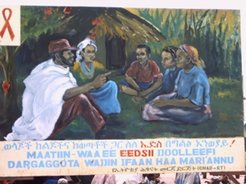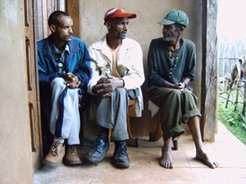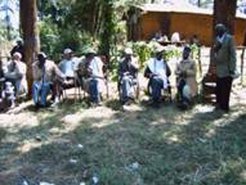Shared Values, Institutions and Development: The Case of the Gurage and Oromo of south-western Ethopia



Elders play a prominent role in the transmission of values in rural Ethiopia
(Photos: Getinet Assefa, 2004. Right picture – Paint-sign-post of CHAD-ET in Woliso town, Oromiya Region)
The research is contextualised in South-Western Ethiopia, a setting characterised by complex livelihood practices, high cultural diversity, and varying connections to centers of political power. In the institutional landscape characterizing migrants’ new environments and their areas of origin, the indigenous institutions on which the research focuses constitute part of a larger, non-state structural complex that coexists with structures of the nation state. Through decades of existence as such, these institutions have served as alternatives for people to engage in independent initiatives for socio-cultural, economic and political empowerment. The research aims at understanding these institutional complexes, their purposes and the ideals they use to rally membership and consequently to realize (developmental) objectives in their different forms. By exploring various socio-cultural, economic and political contexts at different levels (local, regional, national, transnational), it tries to answer why mobilizations based on ethnic belongingness or shared local origin has been considered a better way to serve the causes of development.
Ethiopia has now more than 70 million people belonging to around 85 ethnic groups of widely different sizes of population. The selection of the Gurage and Oromo ethnic groups is based on appreciation of the notable experiences of their members, who (forcedly or willingly) migrated to the capital Addis Ababa and elsewhere in the country, in forming self-help development associations to help them cope with the new phenomenon of urban life and link the rural hinterland (their origin) with modern infrastructure, social and economic services. It is also based on the perceived differential reaction of other cultural groups and the state towards the self-help and development initiatives and associations of the two groups of people or sections of them.


